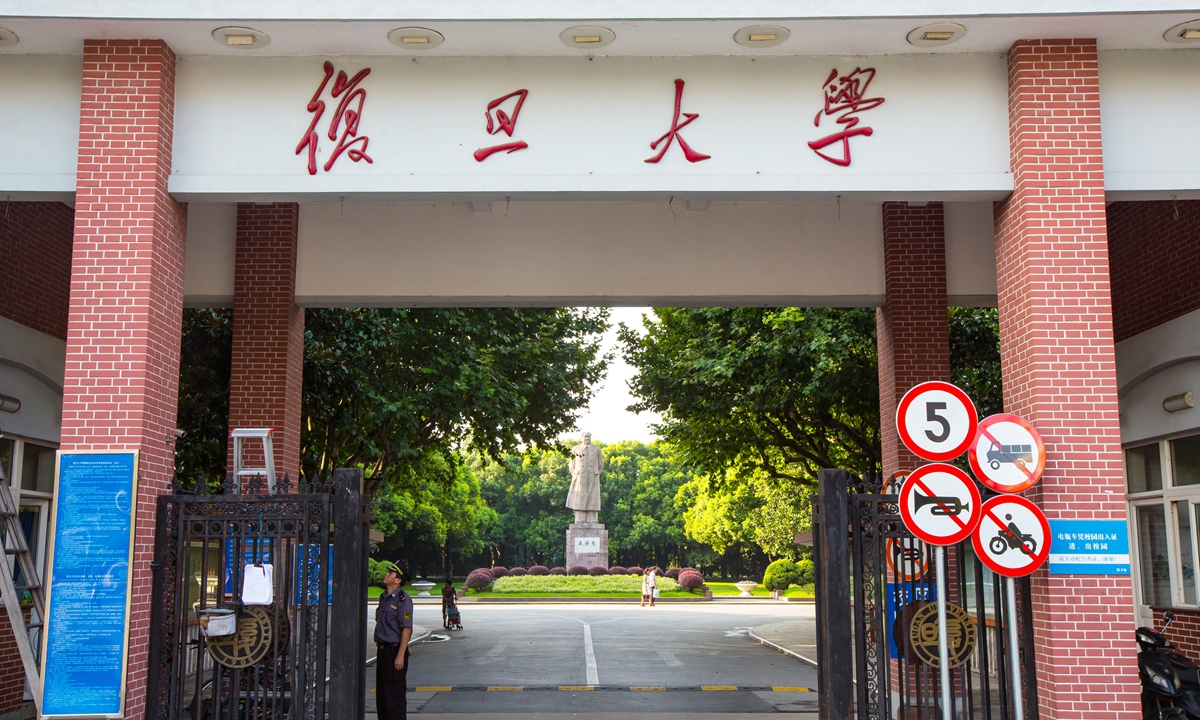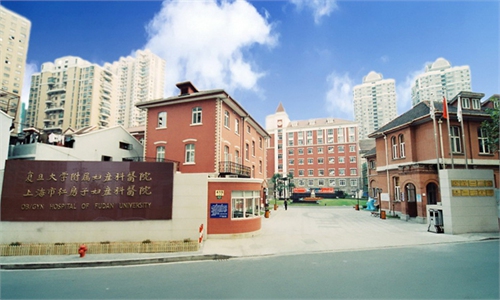Hungary to offer land to planned Chinese university, 'positive' step in developing cultural exchanges

View of a gate of Fudan University in Shanghai. Photo: IC
Hungary's parliament approved a government proposal on Tuesday to donate state-owned land to a planned Chinese university in Budapest, despite the country's opposition party's call to postpone the project for political gains. Chinese observers called the approval a positive step in developing cultural and educational cooperation.
Lawmakers of Hungarian Prime Minister Viktor Orban's ruling Fidesz voted overwhelmingly to donate four plots on the banks of the Danube River to a foundation in charge of the planned branch of China's Fudan University in Budapest, according to Reuters.
Orban's government said that the school could help attract new research and development centers and new investment to Hungary, a Central European country of 10 million people, which relies heavily on foreign investment to drive its economic growth.
The approval suggested that the Orban government is supporting the project despite the domestic political farce staged by the opposition party, Zhang Hong, an associate research fellow at the Institute of Russian, Eastern European and Central Asian Studies of the Chinese Academy of Social Sciences, told the Global Times on Wednesday.
Such a decision, or a positive step, reflects the strong determination of the Hungarian government to develop cultural and educational cooperation with China, Zhang noted.
After a march in Budapest against Hungary's plan to build the Chinese school - a move incited by the country's opposition party to stigmatize the cultural exchanges for political gain - the Hungarian prime minister last week appeared to suspend the plan and offered to hold a referendum on the project in 2023. The move reflected the hurdles ahead in ties between China and Hungary, marred by few opposition politicians' ulterior motives to hijack China-Hungary and China-EU ties.
Reuters said the Hungarian government must present the final plans for the project, including costs, to parliament by the end of 2022, after the next election in April.
Chinese observers cautioned that the latest approval can't be regarded as a final victory, as the opposition has never given up interfering with and smearing the initiative.
"I recommend the project to be suspended until there is a stable political environment in Hungary after the general election next year. The project should not be turned into a political tool by the opposition to attack China and the current Orban government anymore," Zhang suggested.
Some opposition politicians such as Budapest Mayor Gergely Karacsony, who is the leader of a small opposition party, incited the stigmatization and even protested against the cultural-exchange stigmatization by hyping "Chinese human rights abuses" to pave the way for competition against the incumbent Hungarian prime minister.
"The stigmatization can demonize China's image among locals, which is not wise for long-term China-Hungary ties," Zhang said.
The project can be resumed after the election when people can develop more sober views toward its value amid a more rational political environment, Zhang noted.
Speaking at a press conference on June 7, Chinese Foreign Ministry spokesperson Wang Wenbin urged politicians in Hungary to maintain an objective, rational and scientific attitude, avoid politicizing and stigmatizing normal cultural and people-to-people exchanges between China and Hungary, and safeguard the bilateral friendly cooperation.




